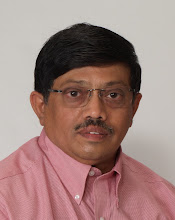A memoir by a ruling Head of State of Pakistan! Without the measured expression by seasoned diplomacy! This is an exciting opportunity to discover what is ahead for Pakistan, mankind's fight against terrorism and for neighbour India.
Written in a racy style that keeps the reader engaged, the book does not disappoint.
Pervez Musharraf is quite outspoken about Pakistan. A few examples:
"Bhutto was the worst thing that happened to Pakistan. He did more damage to the country than anyone else, damage from which we have still not fully recovered"
"President Zia, in the 1980s, completed what Bhutto had started in the dying phase of his regime - the total appeasement of the religious lobby". "Zia found it convenient to align himself with the religious right and create a supportive constituency for himself".
"The four changes of prime minister involved two cycles of alteration between Benazir Bhutto and Nawaz Sharif. Never in the history of Pakistan had we seen such a combination of the worst kind of governance - or rather, a nearly total lack of governance - along with corruption and the plunder of national wealth".
"We stood at the brink of being declared a failed state, a defaulted state, or even a terrorist state".
In four short quotes he disapproves the governance of Pakistan from 1971 to 1999.
Musharraf does admire one ruler of Pakistan however: Pervez Musharraf. He does make moderate claims to qualities of head and heart as a leader - to the extent one can expect in an autobiography. Every dictator or despot nurtures an ambition to claim legitimacy by seeking backing from his/her constituency. Musharraf claims his by bringing in the right mixture of national interests, a poor "state of the union", army support, a referendum and a convenient quote from Abraham Lincoln!
However, what surprises this Indian reader, is an antipathy toward India supported by misrepresentations and deceit:
Musharraf claims that India attacked Pakistan first in 1965 and was given a "bloody nose". Some might say that Pakistan sent its 2nd tank regiment into Jammu first. India halted it and advanced just miles short of Lahore and Sialkot when a UN brokered ceasefire stopped the war.
Musharraf also claims that India, with USSR alliance, invaded Pakistan in 1971 at a time when Pakistan was dealing with mass public uprising in the East. Musharraf ignores the millions of refugees that poured into India thanks to severe threats to normal life from Pakistan's Army. He claims India had an alliance of war with USSR and Pakistan's ally US was not supportive. Truth is different. The only super power to enter the war theater was the US. However, the Indian Army took complete control over the war theater for the US 7th fleet to play any active role and US backed off in the absence of achievable objectives.
Musharraf's recollection of Kargil is at best funny. He claims that "local freedom fighters" occupied Kargil in a maneuver that was "flawless tactical marvel of military professionalism" and Nawaz Sharif lost it in a truce brokered by US. Fact: It was Pakistan's army (Northern Light Infantry) that occupied Kargil. It was a tactical win at a Captain's level and a strategic failure at a General's level. The Indian Army discovered this late (and was criticized in India for this); but the Indian Army fought back and re-occupied all strategic heights. The US brokered truce happened after the re-occupation.
Musharraf stakes a final claim: That the Indian nuclear program used Dr AQ's design. This is a bit mixed up. India exploded its device in 1974. Dr AQ was at that time a young and brilliant metallurgy engineer in Delft in the Netherlands; it would take him another fifteen years to get a dirty bomb for Pakistan.
Musharraf, as a loyal Commander in Chief, tries to paint a larger than life size image for his Army. That is understandable. However, he does not worry about its impact on those who look to him for peace in the neighbourhood and elsewhere. That is worrying.
The leader of Paksitan is quite an important person for humanity's future. Because he can make a big difference on two major issues affecting humanity:
One, Pakistan is the biggest supplier of terrorists today. This supply chain misuses a great religion to provide motivation, drug trade to raise capital, and a vast accumulation of equipments from the cold war era for ammunition.
Two, Pakistan has the power to destroy. This power will have to be carefully handled. By wise, stable and mature hands. One would have thought Musharraf is the best person to control Pakistan's bomb. This book reduces that comfort.
Everyone would agree with one thing Musharraf says in his book. When one sees young Shahid Afridi hit sixers in a cricket match at will, one does feel like jumping with joy like a child. That, at least, is unquestionably true.
